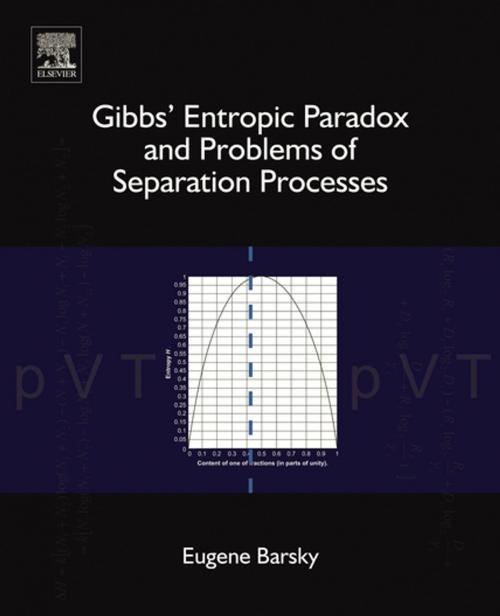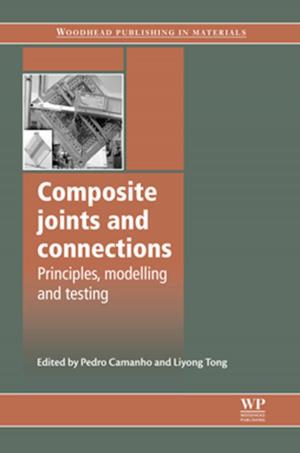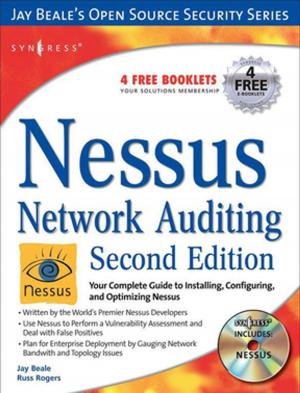Gibbs' Entropic Paradox and Problems of Separation Processes
Nonfiction, Science & Nature, Technology, Engineering, Chemical & Biochemical| Author: | Eugene Barsky | ISBN: | 9780444639202 |
| Publisher: | Elsevier Science | Publication: | March 22, 2017 |
| Imprint: | Elsevier | Language: | English |
| Author: | Eugene Barsky |
| ISBN: | 9780444639202 |
| Publisher: | Elsevier Science |
| Publication: | March 22, 2017 |
| Imprint: | Elsevier |
| Language: | English |
Gibbs' Entropic Paradox and Problems of Separation Processes reviews the so-called Gibb’s Paradox observed during the mixing of two systems. During the last 150 years, many physicists and specialists in thermodynamics, statistical and quantum mechanics been engaged in the solution of the Gibbs paradox. Many books and journal articles have written on this topic, but a widely accepted answer is still lacking. In this book, the author reviews and analyzes all this data. Based on findings, the book formulates a different approach to this paradox and substantiates it on the basis of physical and statistical principles.
The book clearly shows that entropy consists of two parts, static and dynamic. Up to now, entropy has been connected only with the process dynamics. However, the Gibbs paradox is caused by the change in the static component of entropy. Finally, the book includes examples of separation processes and how to optimize them in various fields, including biology, cosmology, crystallography and the social sciences.
- Provides a precise definition of entropy and allows the formulation of criteria for optimization of separation processes
- Explains the role of entropy in many processes, facilitating an in-depth analysis and understanding of complicated systems and processes
- Provides solutions to scientific and applied problems in various scientific disciplines related to separation processes
- Elucidates entropy’s role in many separation systems
Gibbs' Entropic Paradox and Problems of Separation Processes reviews the so-called Gibb’s Paradox observed during the mixing of two systems. During the last 150 years, many physicists and specialists in thermodynamics, statistical and quantum mechanics been engaged in the solution of the Gibbs paradox. Many books and journal articles have written on this topic, but a widely accepted answer is still lacking. In this book, the author reviews and analyzes all this data. Based on findings, the book formulates a different approach to this paradox and substantiates it on the basis of physical and statistical principles.
The book clearly shows that entropy consists of two parts, static and dynamic. Up to now, entropy has been connected only with the process dynamics. However, the Gibbs paradox is caused by the change in the static component of entropy. Finally, the book includes examples of separation processes and how to optimize them in various fields, including biology, cosmology, crystallography and the social sciences.
- Provides a precise definition of entropy and allows the formulation of criteria for optimization of separation processes
- Explains the role of entropy in many processes, facilitating an in-depth analysis and understanding of complicated systems and processes
- Provides solutions to scientific and applied problems in various scientific disciplines related to separation processes
- Elucidates entropy’s role in many separation systems















